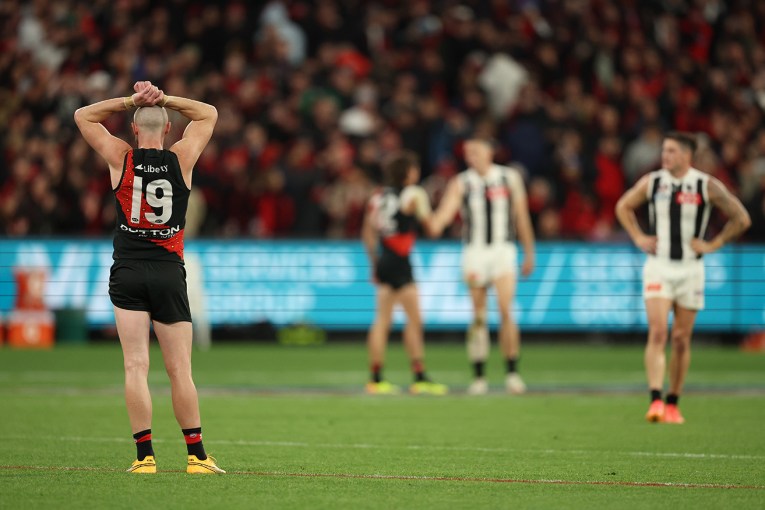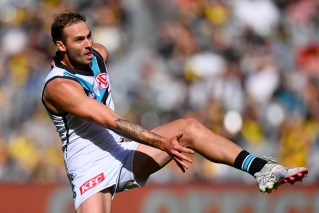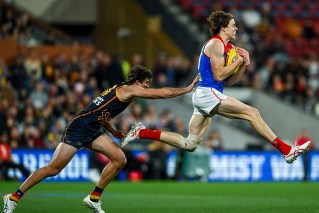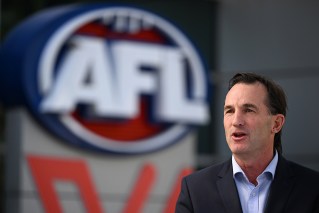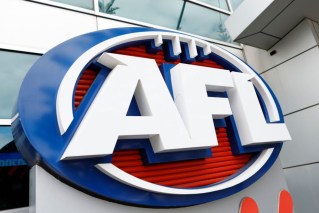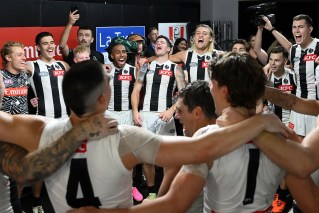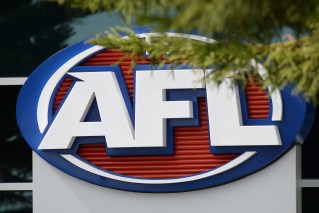The Demetriou verdict: it was time to go

Andrew Demetriou’s timing is spot on.
He picked the moment perfectly, and will depart the chief executive’s desk at AFL headquarters at the end of 2014 having served 11 seasons in the job, likely to be judged as the league’s best CEO. This is notwithstanding the recurring drama of the past two years, his worst in the position.
In truth, his administration looked to be reaching its natural end, and Demetriou saw it. Since 2012, he said, he had been talking about transition with the AFL Commission chairman, Mike Fitzpatrick. Ultimately the change should be good for the game, with the significant rider that the commission chooses the right candidate to replace him.
He has had a rough two years and, in a roundabout way, the success of his term in growing the game came back to bite him, for it led clubs to take shortcuts in their quest for the big prize.
The monster he created with his whopping television rights deals and exploding revenue took a few chunks out of him. Adelaide’s salary cap issues in 2012, Melbourne’s failure to perform on its merits in 2009 in search of early draft picks and Essendon’s injection program of the 2011-12 off-season all left their stain upon the league’s supremo.
Each time, there was unseemly plea bargaining behind closed doors to reach some sort of resolution. With hindsight, this was a contradiction of Demetriou’s reign, for under his watch the AFL prided itself on transparency, sending its football department people and its umpires’ coaches out to the clubs and to big media outlets, for instance, to brief administrators and media. It smacked of back-room dealing.
Demetriou’s low point may well be the moment he chose to insist that Hird was going sans salary in 2014. He looked as though he was out of the loop
Not surprisingly, the public did not get why Melbourne was found not to have tanked yet copped a massive fine, or why James Hird was suspended, yet paid. Demetriou’s low point may well be the moment he chose to insist in a radio interview that Hird was going sans salary in 2014, when in fact this was not the case. For the first time in his decade-long tenure, he looked as though he was out of the loop.
Demetriou was angry that some people were inclined to blame him for Essendon’s “pharmacologically experimental environment”, hence his prickly comment: “I didn’t inject anyone”. But in fact it was the handling of these matters that brought the criticism, and rightly so.
Yet his legacy is exceptionally strong. In fact, the plusses will outweigh the minuses when the great CEO marker sits down at the end of this year to weigh it up.
He flooded the AFL with money with two record television deals, overseeing a near-tripling of league revenue to north of $400 million, miles ahead of any other code in the country. This helped prop up the clubs, and none disappeared in his time, significant given that previous administrations actively encouraged unpopular mergers and let Fitzroy die.
Nobody was left to wither on the vine and, in my view, this is his greatest achievement.
Demetriou embraced all the current clubs, then added another two in Greater Western Sydney and Gold Coast, proactive moves that will be judged long after he has gone. When existing clubs found financial trouble, they went on to an AFL drip that did not exist previously. Nobody was left to wither on the vine and, in my view, this is his greatest achievement.
His administration worked hard to improve facilities and developed a truly national feel to it, and it is significant that he rated the Adelaide Oval redevelopment as his finest moment. This means little in, say, Melbourne, but a great stadium in the heart of the South Australian capital can only boost the game in that state.
While the AFL’s award-winning vilification policy was introduced prior to his arrival, he drove it hard. When Majak Daw, North Melbourne’s Sudanese-born ruckman was abused in Launceston recently, many people around the fool who uttered the words objected.
The role of women in the game has never been better understood and appreciated. Demetriou can take some credit for this better environment, and it is a highly important change of culture from 20 years ago.
Of course he had had many critics but many of them forgot that their own clubs had lived off AFL largesse at some point, and that Demetriou had created the wealth. There is a perspective to this. Nobody barracks for City Hall, and he knew that, of course. Respect is what he craved within the industry, and he got it.
